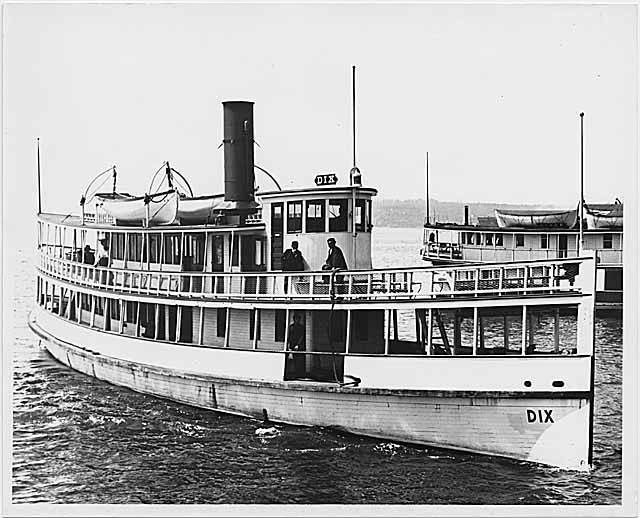According to Jeff Hummel, CEO of Rockfish, Inc. (Salvage Company), his crew believes they have located the SS Dix. He hopes to meet with lawmakers and government agencies to discuss how to secure the site.
The SS Dix was part of the “Mosquito Fleet” that transported passengers across Puget Sound. After colliding with another vessel, it sank in 1906. To this day, the collision is considered one of the most serious transportation accidents in the state of Washington, USA.
In May 2011, it was falsely reported that wreckage from the SS Dix had been discovered off Seattle’s Alki Point. What they thought was the wreckage was quickly discovered to be not the Dix. The Northwest Shipwreck Alliance recently announced the true discovery of the Dix on November 17, 2023. The Alliance revealed to reporters that they had been studying the wreck site and testing their equipment on it for years while working with Rockfish Inc. Their hope is to provide legal protection for the gravesite in order to prevent disturbance.
Dix was built specifically for one route: the run across Elliott Bay from Seattle to Alki Point, Seattle’s main recreation area at the time. A.B.C. Dennison and W.L. Dudley owned her and operated her as the Seattle and Alki Point Transportation Company. She was poorly built and appeared to be top-heavy, as steamboat inspectors refused to issue her a seaworthiness certificate twice. Only after her builders installed 7 tons of gravel ballast in her hull and bolted 5 tons of iron weights to her keel did they relent. Nonetheless, she was said to be difficult to manage.
Sinking and Aftermath
Dix was serving as a relief boat for Monticello on the Seattle-Port Blakely run on November 18, 1906. She took off from Seattle with approximately 77 passengers. Her captain, Percy Lermond, who was in charge of collecting fares, was not present in the pilot house, leaving mate Charles Dennison in charge. In theory, fare collection was the responsibility of the purser, but on smaller vessels, the master was expected to perform this function.
The evening was calm and partly clear, so Captain Lermond went to his quarters behind the pilot house to tally the fares as the ship steamed west past Alki Point into the open Sound. Dix approached the Alaska Coast Company steamer Jeanie off Duwamish Head, and then mate Dennison (who turned out to be unlicensed) inexplicably turned the vessel directly into Jeanie’s path. Jeanie was ten times Dix’s size and was loaded with iron ore. Even though Jeanie had already reversed her engines and was barely under steerage way, the impact was enough to cause Dix to heel sharply over on her port side due to Jeanie’s much greater weight. She quickly filled with water, rolled over, and sank 616 feet below the surface.
“The sight fascinated me by its horror. Lights were still burning and I could see people inside of the cabin. The expressions on the faces were of indescribable despair. There were cries, prayers, and groans from men and women, and the wail of a child and the shouts of those who were fighting desperately to gain the deck.“
Captain Lermond of the SS Dix

The number of passengers lost varies. The New York Times reported 40 lost after receiving a dispatch from Portland, Oregon about the sinking. Years later the New York Times reported that the Dix sank with 54 passengers on board. Salvage operations were impossible due to the wreck’s depth. No bodies were ever found; people were trapped inside and perished along with her.
Captain Lermond was among the survivors, and he died in 1959, at the age of 90. His master’s and pilot’s licenses were revoked following the sinking of the Dix. The Steamboat Inspection Service found Dix entirely to blame for failing to maintain an effective lookout; the captain, who was acting as both master and fare collector at the time of the accident, was found to have negligently handed over control of the steamer to an unqualified person. Captain Lermond had apparently failed to object to the requirement that he collect fares out of fear of losing his job.
Although his license was reinstated a year later, Captain Lermond spent the rest of his career in command of tugs, never again commanding a passenger vessel.
A memorial to the SS Dix was dedicated in a small park at Duwamish Head (West Seattle, Washington) in 1973.






